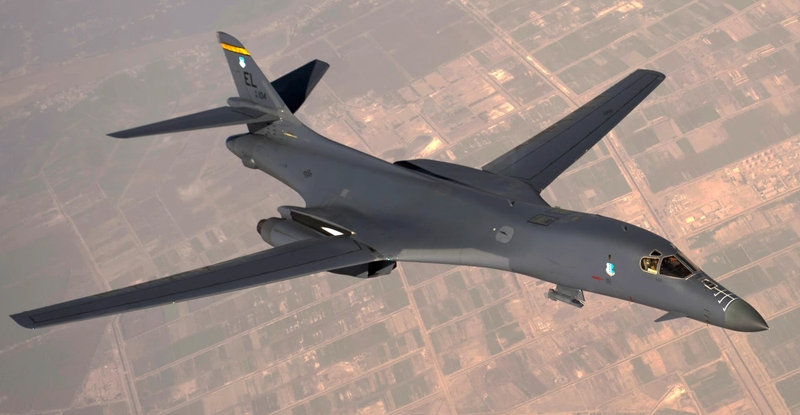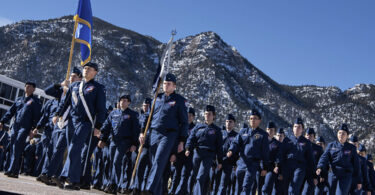From Military.com: A B-1B Lancer valued at more than $450 million that crashed in South Dakota at the start of this year missed the runway by 100 feet, a mistake accident investigators attributed to the aircrew’s shortcomings as well as the poor training culture within units at Ellsworth Air Force Base.
The scathing crash investigation report shared with Military.com pointed to
- “failure to perform standard crew resource management,” along with
- adverse weather conditions,
- ineffective flying operations supervision,
- lack of awareness, and
- “an unhealthy organizational culture that permitted degradation of airmanship skills”
as contributing factors in the Jan. 4 crash.
The B-1B Lancer, which was on a training mission, crashed roughly 100 feet shy of the runway, skidded more than 5,000 feet down the tarmac, and was then engulfed in flames from the crash. The four crew members all ejected, but two of them suffered injuries as a result. Both were medically treated and later released, according to Air Force Global Strike Command, which commissioned the crash investigation report.
The Lancer was destroyed, and the damage to the aircraft and the runway was estimated to be more than $456 million.
The report also points out that one crew member who was injured during the ejection was not wearing all the proper flight equipment.
And the other injured crew member’s weight was reportedly above both the ejection seat’s recommended limit of 211 pounds and the Air Force’s recommendation of 245 pounds. They weighed in at nearly 260 pounds during medical treatment, which “likely contributed to the severity of the injuries noted from the mishap.” . . .
. . . Col. Erick Lord, the accident board investigation president, pointed to the crew’s shortcoming and harped on the one crew member’s weight as examples of larger cultural problems within Ellsworth Air Force Base’s 34th Bomb Squadron and the 28th Operations Support Squadron.
“The preponderance of the evidence revealed an ineffective and unhealthy culture, which directly contributed to the mishap,” he wrote.
“Specifically, the [34th Bomb Squadron’s]
- overall lack of discipline,
- inadequate focus on basic airmanship skills, and
- failure to properly identify and mitigate risk,
coupled with the [28th Operations Support Squadron’s]
- ineffective communication, inadequate program management, and
- lack of supervisory oversight,
set conditions that allowed this mishap to occur by directly leading to the mishap’s cause and its three non-weather-related, substantially contributing factors.”. . . (read more)








Leave a Comment